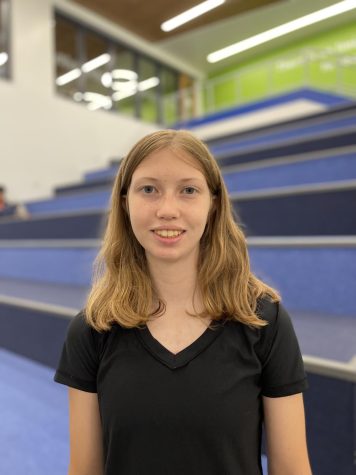504 plans level the academic playing field
Photo by and used with the permission of Mari Helin
According to kidshealth.org, “Section 504 of the U.S. Rehabilitation Act of 1973 is designed to help parents of students with physical or mental impairments in public schools, or publicly funded private schools, work with educators to design customized educational plans.” With several standardized tests high school students have to take, there are several individual accommodations that can be made.
Every student has their strengths and weaknesses, but some medical conditions can provide bigger challenges—that is where 504 plans come in.
504 plans are legal documents consisting of different accommodations that students may receive if they have been medically diagnosed with a condition that has been shown to interfere with school, such as ADHD, anxiety disorders, or dyslexia. While plans vary from student to student, common accommodations include extended time, technological aids, and preferential seating.
“If a student has been medically diagnosed with a certain condition, and that condition is interfering with school, they can receive a 504 plan,” Cara Stronsky, counselor, said. “Most students with 504 plans get them before high school, but as long as you’ve been medically diagnosed, you’re eligible to receive a 504.”
The benefit of 504 plans is that they allow mentally-challenged students to perform at the same level as their peers, according to Peter Nadler, assistant principal.
“Let’s say you’re taking a test and it takes you twice as long to read a sentence compared to other students—it wouldn’t be fair to give you both 40 minutes to take that test, so you would get extra time to complete it,” Nadler said. “We aren’t giving anyone advantages—it’s about giving students equal opportunities.”
504 plans are reevaluated every three years for each student in order to ensure that they are still necessary.
“These are legal documents—we aren’t just handing out 504s to anyone, we’re trying to make sure that the academic playing field is level,” Nadler said. “If a student isn’t using their 504 accommodations, or they just don’t need them anymore, they can decline the plan and they won’t have those accommodations anymore.”
Nadler says that it is important to regard 504 plans as “equitable,” rather than advantageous. “There’s a sort of stigma around 504s and I think that it is important for everyone to know that having a 504 doesn’t necessarily make one student academically ‘weaker’ than someone who doesn’t,” Nadler said. “504s are just meant to give everyone an equal chance at success. We all have strengths and weaknesses, and I think that the sheer number of students [about 350] with accommodations are proof of that.”

Going into her senior year, this is Mackenzie’s second and final year on staff and her first year as News Editor. She looks forward to graduating and...

